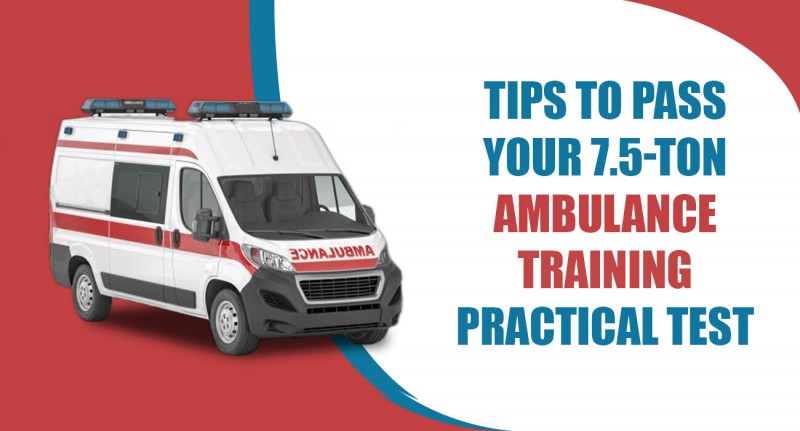Your 7.5 tonne licence is your ticket to a rewarding career as a commercial truck driver. After spending time and money on your Driver Certificate of Professional Competence (Driver CPC) course, you'll want to become certified and start working as soon as possible. The Driver CPC consists of theoretical and practical driving tests, although the practical driving test is unquestionably the one that most learners find the most challenging.
What is the practical driving test?
Part 3 of the Driver CPC is the practical driving test. It lasts for one hour and thirty minutes and consists of three things: questions about vehicle safety, actual road driving, and off-road activities. The trainer evaluates these driving abilities through the following:
- Using the controls of the car.
- Moving obliquely away (uphill and downhill).
- Stopping with control.
- Make use of your mirrors.
- Giving the proper signal.
- Both awareness and readiness.
- Managing your development and speed control.
- Addressing dangers.
- Finding a secure location to halt
- If you're taking your test with a trailer connecting, uncoupling one is required.
- Reversing in an S shape into a parking space.
Best tips to pass tests on the first try
Any practical test might be intimidating. But many of us are brought back to when we took our first vehicle driving test when it comes to driving. The feeling that something is partially out of your control. Whether or not you pass could depend entirely on the examiner's mood that day or how the traffic is behaving around you rather than on your driving skills.
It's crucial to keep in mind that you are now older, wiser, and have some driving experience. You will have mastered and passed the theory parts by the time you take your practical test and will have completed a significant amount of 7.5 ton ambulance training.
Our best advice for completing your 7.5 ambulance training practical test is below:
Practising is essential.
"failing to prep is preparing to fail."
Making sure you practise a lot is the best approach to being ready for the test and boosting your self-assurance. Particularly with the trickier parking and reversing techniques. Additionally, become familiar with local routes. So you are aware of potential trouble spots and intersections. Finally, go back to the fundamentals and review your theoretical and practical knowledge of HGV driving. You don't want to fall short because you misread a sign.
Have a restful night's sleep
The evening before an exam is not the time to go out. Get a good night's rest, and on your big day, ensure you're well-fed and well-hydrated. Avoid consuming excessive amounts of caffeine; while one cup can promote alertness, more than four can make you nervous and anxious and damage your capability to drive.
Put on comfortable, appropriate clothing
Make sure you're test-day attire is both comfortable and suitable. Put on appropriate shoes; while flip-flops may be good in the summer heat, they are inappropriate for a driving test.
Be ready.
Try to arrive at the testing location at least 15 minutes before the start of the test. Additionally, ensure you bring your driver's licence and other necessary paperwork. Prepare this the night before. So you have one less thing to worry about on the big day. Finally, turn off your phone to reduce distractions. Even under the best of circumstances, text alerts and messages are irritating. However, you don't need them when taking your driving test.
Be upbeat and assured.
It's normal to feel a little nervous before a test. Since your body uses this to increase adrenaline when stressed, it can help you perform better. However, excessive nervousness can spread, so feel confident and upbeat as you take the test. Before your test, a quick final warm-up lesson might help you mentally prepare by reducing your anxiety and putting you in the correct frame of mind.
There you have it, then. Our best advice for passing your driving test is in reality. If you succeed, that's fantastic! The next step is to get your Driver CPC and start working as a licensed HGV driver. If you've received a failing grade, be careful to discuss your mistakes with the examiner. To make sure that doesn't happen again, talk to your instructor. Maintain your optimism; you will succeed. You can reschedule your exam and only need to wait three days before retaking it.
Also Read: Requirements for getting HGV Licence

